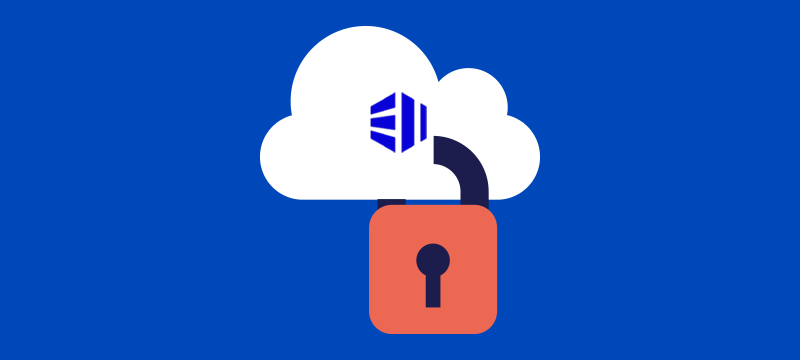In recent years, the public sector has increasingly embraced cloud technology as a means to enhance efficiency and reduce costs. However, as government agencies and organisations migrate to the cloud, they must also be aware of the security risks associated with the technology. The cloud is not inherently secure, and without proper security measures in place, data breaches and cyberattacks can occur. In this post, we will explore some of the key steps that the public sector can take to improve cloud security.
Implement strong access controls
One of the most important steps that the public sector can take to improve cloud security is to implement strong access controls. This means controlling who has access to sensitive data and ensuring that only authorised users are able to access it. Access controls can be implemented through the use of identity and access management (IAM) tools, which allow administrators to manage user permissions and grant access to different resources.
IAM tools can be used to assign roles and permissions to users based on their job responsibilities. For example, a user with a role in finance may be given access to financial data, while a user with a role in human resources may be given access to personnel records. By implementing strong access controls, the public sector can minimise the risk of unauthorised access to sensitive data.
Encrypt data in transit and at rest
Another important step that the public sector can take to improve cloud security is to encrypt data in transit and at rest. Encryption is the process of converting data into code that can only be deciphered with a decryption key. This ensures that even if data is intercepted, it cannot be read by anyone who does not have the decryption key.
Encryption can be used to protect data as it travels between different systems and devices. This is known as data-in-transit encryption. It can also be used to protect data that is stored on servers and databases, i.e., data-at-rest encryption.
By implementing encryption, the public sector can ensure that sensitive data is protected from prying eyes and cybercriminals. Encryption should be used for all sensitive data, including personal information, financial data and other confidential information.
Implement multi-factor authentication
Multi-factor authentication (MFA) is another measure that can improve cloud security. MFA requires users to provide two or more pieces of identification before they are granted access to a system or application. These can include a combination of something the user knows (such as a password), something the user has (such as a token, smart card or smartphone), or something the user is (such as biometric data, like fingerprints or facial recognition).
By implementing MFA, the public sector can ensure that even if a user’s password is compromised, the attacker cannot gain access to the system or application without the second factor of authentication. MFA should be used for all public sector systems and applications that contain sensitive data.
Perform regular security audits
A security audit is an evaluation of an organisation’s security policies and procedures to ensure that they are effective in protecting against cyberattacks and data breaches. They should be performed by an independent, third-party auditor who is not affiliated with the organisation being audited. Auditors should evaluate the effectiveness of access controls, encryption, MFA and other security measures. This will allow the organisation to identify weaknesses in its security infrastructure and take steps to address them before they can be exploited.
Train employees on cloud security best practices
Human error or lack of awareness can result in a cyberattack or data breach. To minimise the risk, the public sector should ensure that all employees are trained on cloud security best practices. This includes training on how to use IAM tools, how to identify and report suspicious activity and how to protect sensitive data.
Employees should also be trained on the importance of strong passwords, how to create and store them and the risks of sharing them, as well as how to recognise phishing emails and other social engineering attacks.
Choose a secure cloud provider
In addition to implementing security measures internally, choosing the right cloud provider can also improve public sector cloud security. A reputable cloud provider will have robust security measures in place, including physical security controls, network security, data encryption and access controls. They will also provide regular security updates and have a team of security experts monitoring their systems 24/7 to detect and respond to potential threats.
Furthermore, cloud providers may also offer compliance certifications and attestations, such as PCI-DSS and ISO 27001, which demonstrate their commitment to security and compliance. By choosing a cloud provider that has strong security measures and compliance certifications, the public sector can benefit from the provider’s expertise and infrastructure to improve its own cloud security.
Conclusion
As the public sector continues to embrace cloud technology, it is critical that security measures are put in place to protect sensitive data. By implementing strong access controls, encrypting data in transit and at rest, implementing multi-factor authentication, performing regular security audits and training employees on cloud security best practices, the public sector can significantly improve cloud security.
However, it is important to note that cloud security is not a one-time fix. Security measures must be continuously monitored, audited and updated to ensure that they remain effective against evolving cyber threats. By working with trusted cloud service providers, like eukhost, the public sector can continue to reap the benefits of cloud technology while keeping sensitive data secure.
For more information about our managed cloud solutions, visit our Secure Cloud Servers page.



